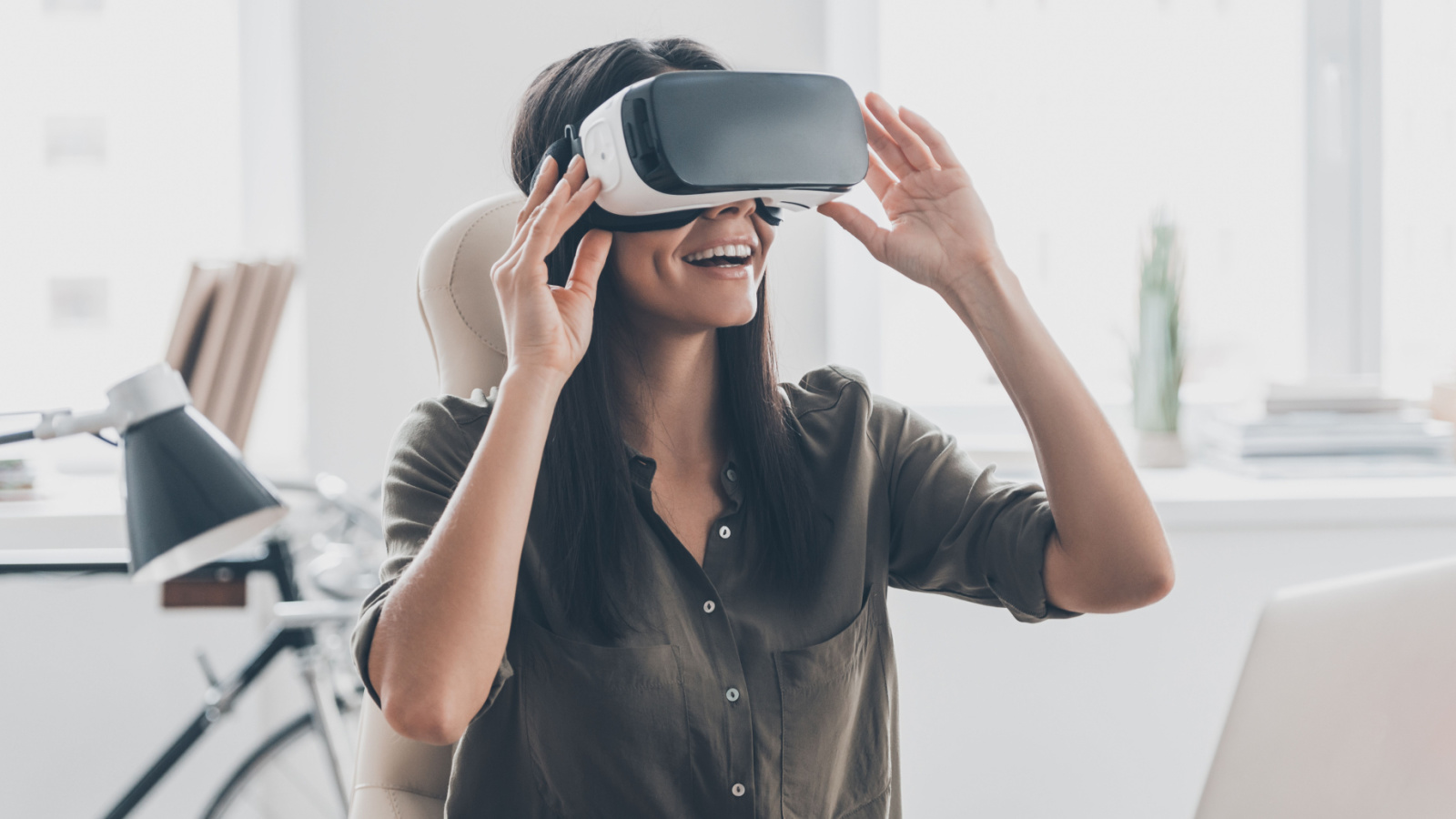With the rapid advancement of technology comes a growing generational divide. As younger minds effortlessly adapt to new tools, their elders stick to what they know. Here are the technology trends that today’s seniors are hesitant to try.
Smart Home Devices

Many seniors find the concept of controlling their home with a smartphone bewildering. They prefer the reliability of traditional appliances and manual adjustments. The idea of speaking to a device to turn on the lights or adjust the thermostat often seems more like science fiction than a practical solution.
Social Media Overload

Social media can be overwhelming for older generations, who value deep, meaningful connections over the fleeting online interactions. The constant barrage of updates, tweets, and posts feels chaotic compared to speaking in person or on the phone.
Cryptocurrency

Cryptocurrency remains a puzzling concept to many seniors. The idea of digital currency, not backed by a physical commodity or government, strikes them as risky. They often question the stability and usefulness of such currencies.
Fast Fashion

The trend of fast fashion is at odds with the old-school principle of buying quality items that last. Seniors are puzzled by the rapid turnover of trends and the disposable nature of today’s clothing. They value craftsmanship and sustainability over the latest fads.
Texting Lingo

Abbreviations and acronyms common in texting and online communication can be a foreign language to older individuals. They often prefer clear, full sentences and feel that nuances of communication are lost in short-form messages.
Influencer Culture

The concept of influencers and their impact on purchasing decisions and trends baffles many seniors. They struggle to understand how individuals can earn a living by promoting products on social media.
Streaming Services

The transition from cable television and physical media to streaming services can be perplexing. Many older adults are accustomed to scheduled programming, not the idea of choosing from an endless library at any moment.
Virtual Reality

Virtual reality technology, with its headsets and digital environments, is a leap too far for some seniors. They find the idea of immersing oneself in a computer-generated world disorienting and unnecessary. They prefer real-world experiences and interactions.
E-books and Audiobooks

The shift from physical books to e-books and audiobooks doesn’t sit well with many in the older generation. They treasure the feel of paper, the sound of turning pages, and the visual satisfaction of bookshelves. Digital formats lack the sentimental value that traditional books hold for them.
Ride-Sharing Apps

The idea of summoning a ride with an app, rather than hailing a taxi or driving oneself, is a concept some seniors are slow to embrace. They are wary of the safety and privacy implications of getting into cars with strangers.
Voice Assistants

Voice-activated assistants like Siri or Alexa can seem intrusive to those who value privacy. The thought of a device always listening in one’s home is unsettling. They prefer human assistance and the personal touch that comes with it.
Online Dating

The concept of finding a partner online is a far cry from the traditional ways of meeting someone through friends or community events. Many seniors view online dating with skepticism, concerned about the sincerity and safety of connections made in such a way.
Digital Payments

The move towards a cashless society and the rise of digital payments can be confusing. Older adults often prefer the tangibility and simplicity of cash or checks. The idea of transferring money electronically seems impersonal and, at times, insecure.
Selfie Culture

The obsession with taking selfies and sharing every moment online is hard for many seniors to understand. They value privacy and living in the moment, rather than capturing it for public display.
Remote Work

The concept of working from anywhere, especially from home, challenges traditional views of a workplace. Many seniors see the value in separate work and home environments for focus and structure.
Food Delivery Apps

Ordering food through an app rather than cooking at home or visiting a restaurant seems unnecessary to some older individuals. They see meal preparation and dining as activities to be savored and shared.
Online Gaming

With the rise of online gaming and esports, seniors struggle to see the appeal of spending hours in virtual competition. Physical activity and face-to-face interactions hold more value.
Smart Watches

The idea of a watch that does more than tell time is novel and unnecessary for many seniors. They appreciate the simplicity and elegance of traditional timepieces. The additional features of smartwatches seem overly complicated.
Disposable Electronics

The trend towards devices that are quickly outdated and replaced goes against the principle of longevity and repairability. Seniors often question the sustainability and cost-effectiveness of such practices. They value items that are built to last and can be fixed rather than discarded.
Reality TV

The rise of reality TV and its portrayal of fame and personal life as entertainment puzzles many in the older generation. They long for scripted shows with depth and craftsmanship. The perceived lack of substance in reality TV fails to capture their interest.
Slang and Modern Vocabulary

The evolution of language and the introduction of new slang and phrases can alienate seniors. They pride themselves on proper language use and may view modern vocabulary as a degradation of communication.









Das L’Orange Verte bietet Bistro-Küche, Teestube und Café zu jeder Tageszeit.
Das Restaurant im Salle Empire im Hôtel de Paris bietet einen eindrucksvollen Flair und italienische Küche.
Das Café de Paris bietet ganztätig Service mit behaglicher Terrasse und gemütlichem Saal.
Aber die lauten und auffälligen Spielstätten am Vegas Strip kommen in puncto Klasse und Eleganz nicht annähernd an das Casino de Monte-Carlo heran. Das wahre Wesen des Casinos liegt in seinem Ruf
und den Mythen, die sich um das Monte-Carlo Casino ranken. Das Monte-Carlo Casino
ist auch nicht das älteste Casino der Welt, da es ältere Ziele
in Deutschland und unter den italienischen Casinos gibt.
Das Monte-Carlo Casino ist nicht das größte Casino der Welt, nicht annähernd.
Neben den klassischen Spielern aus Osteuropa und Italien kamen mehr Kunden aus dem Nahen Osten und China.
Im Juli 2004 tauchten Berichte auf, wonach die SBM gemeinsam mit
dem US-amerikanischen Casinomilliardär Steve Wynn in der Bucht von Monaco ein schwimmendes Mega-Casino bauen werde.
Die SBM brauchte bis 2005 nur 13 statt der vorgesehenen 20 Prozent ihres Gewinns an den Staat abzugeben, danach
dann gestaffelt wieder mehr. Januar 2003 wurde der Staatsvertrag mit der SBM um
weitere 20 Jahre verlängert. 5 Prozent des Staatshaushalts Monacos und machte in mehreren Jahren Verluste.
Onassis zog sich in der Folge aus der SBM zurück.
References:
https://online-spielhallen.de/drip-casino-cashback-eine-umfassende-analyse/
We have some of the most perfect restaurants for special occasions in Sydney.
With a lineup of world-acclaimed and award-winning chefs leading
Crown Sydney’s restaurants, each experience will be one to remember.
Each restaurant’s menu showcases dishes inspired by flavours found
locally and around the globe.
With all-you-can-eat options available, you can indulge in as much as you like without breaking
the bank. One of the standout features of Crown Melbourne’s buffets is the live cooking
stations, where you can watch as your food is prepared right in front of you.
From fresh seafood to succulent roasts and decadent desserts, there’s something to satisfy every taste bud.
Savour flavours of tradition from around the world at The Conservatory, a hub that boasts a tantalising array of classic dishes.
With an elegant breakfast, lunch, and dinner buffet selection, you are
spoiled for choice whether you feel like a decked out seafood platter or a high tea evening.
Look forward to seafood in summer, a hearty vegetable
risotto in autumn, a fine piece of wagyu beef come winter, and a roast leg of lamb in spring.
With a paddock to plate philosophy, the Bistro Guillaume menu showcases local Victorian produce and changes with the finest tastes of the season. Whilst
very conveniently offering a wide range of foods
and being open quite late at night, it is not known for its quality
or value for money. Savour flavours of tradition from around the world at Epicurean, a hub that boasts a tantalising array of classic dishes.
With an elegant breakfast, lunch, and dinner buffet selection, you are spoiled for choice whether you feel like a seafood platter or carved
feast.
References:
https://blackcoin.co/zodiac-bet-erfahrungen/
Use a players card at a high-class hotel like the Bellagio Hotel Vegas and
you can earn free rooms, comped food and drink and
more. With some of the finest restaurants, shopping, entertainment, and amenities
in the world, you can indulge extravagantly without ever leaving the grounds.
If you’re visiting Vegas in search of luxury, Bellagio
Hotel & Casino Resort should be your home during your stay.
Grab quick snacks, drinks and newspapers at this grab-and-go
stand at the Bellagio Hotel Vegas. With live pianists and an exciting menu, it’s clear why Bellagio Hotel Vegas has made Petrossian Bar a guest’s first introduction to
the resort.
Renowned for its spectacular Fountains of Bellagio and the breathtaking Conservatory &
Botanical Gardens, this iconic resort stands as a beacon of
sophistication and style in the heart of the Strip. Bellagio, a
landmark of luxury in Las Vegas, reflects a timeless elegance through its stunning architecture and exquisite artistry.
On an early morning in March 2017, men wearing animal-themed masks broke into a jewelry
store at the resort, prompting a police lockdown of the
casino and parking garage. Bellagio was the only hotel in the U.S.
to have two Five Diamond restaurants. The resort’s Picasso restaurant
has also been critically acclaimed, receiving the AAA Five Diamond
and Mobil Five-Star awards by the end of 2001.
References:
https://blackcoin.co/las-vegas-a-comprehensive-guide/
online slot machines paypal
References:
careers.universalair.aero
online casino accepts paypal us
References:
udyogseba.com